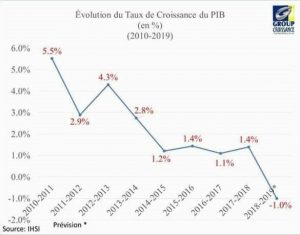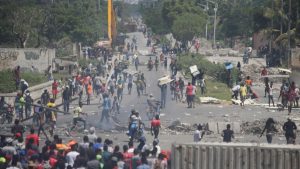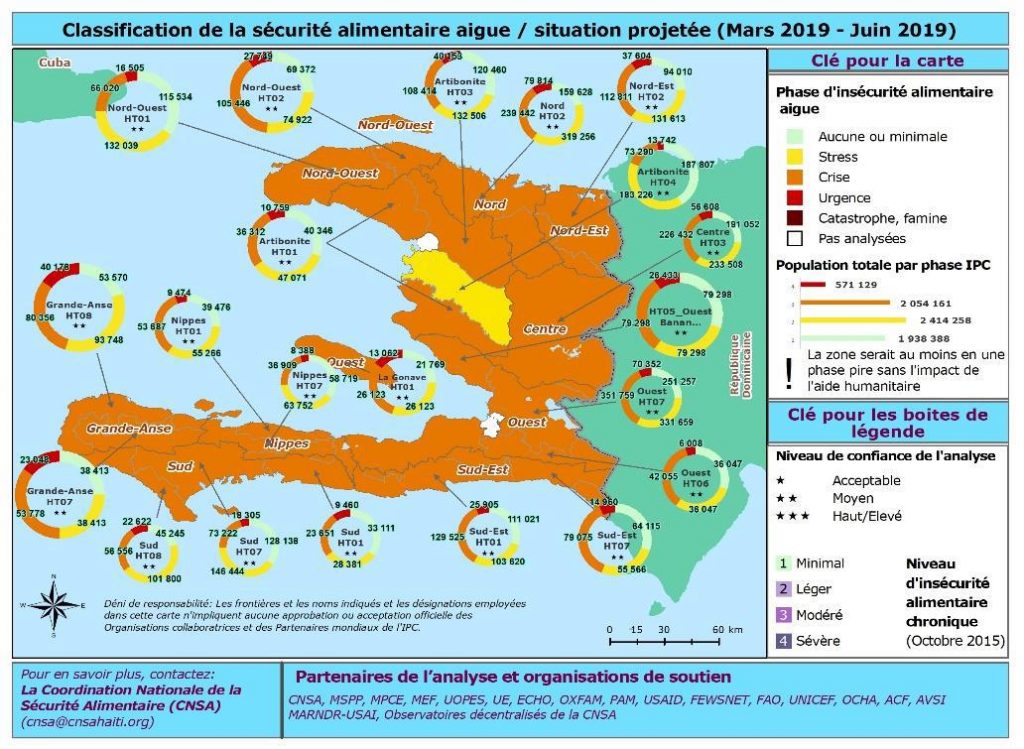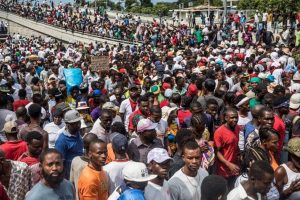Caribbean
Haiti on the Brink of Collapse: Malteser International Americas Update
Haiti is facing critical food insecurity and a health system crisis due to political and economic volatility. The current situation is debilitating the infrastructure of the Western Hemisphere’s poorest nation, leaving it on the brink of collapse. This alarming context is also jeopardizing the ability of humanitarian organizations to deliver aid.
Political unrest has erupted in ongoing mass protests. Since former Prime Minister Jean Henri Ceant’s demission on March 21st, 2019, there has not been a functioning government. Haiti’s government is a semi-presidential system with the president elected directly by popular vote and functioning as head of state, and a prime minister, appointed by the president, acting as the head of government. The vacuum in the prime minister’s role has prevented the adoption of the 2018-19 and 2019-20 budgets and a series of electoral laws.
Several corruption scandals have marred public officials, including President Jovenel Moise. Protesters are asking for his resignation.
Economy
The economic panorama is darkening. The national currency (the gourd) has lost 37.6% of its value against the United States dollar over the past year, the inflation rate is now estimated at 19.1 %, and inflation for food products is at 22.4% (July 2019). The country’s gross domestic product is expected to have declined by more than 1% in the last fiscal year.
In the agricultural sector, low yields from droughts and low rainfall have been exacerbated by gangs driving farmers off their land.
Food Insecurity
This bleak panorama is producing food scarcity in rural areas, with figures rising from 17% in 2018 to 49.5% in April 2019. According to the IPC food insecurity analysis – a global system that classifies food insecurity in 5 Phases – 8% of the population analyzed are in IPC Phase 4 (Emergency) category and 29% are in IPC Phase 3 (Crisis), representing approximately 37% of the population. This deterioration is due to key factors: drought, price increases, socio-political instability and structural vulnerability.
With the socio-political crisis quickly deteriorating, it is realistic to consider that 3 to 4 million people will be afflicted with IPC Phase 3 and 4 in the near future.
According to the 2018 Global Hunger Index report, Haiti is one of just seven countries with GHI scores that are considered alarming or extremely alarming. Its undernourishment rate, at 45.8 percent in 2015–2017, is the fourth-highest in the world behind Central African Republic, Zimbabwe, and Somalia. Approximately half of the population is not able to meet its minimum calorie requirements on a regular basis. Haiti’s child mortality rate is the highest in the Western Hemisphere: child wasting is at 3.7 percent; and just 11 percent of children ages 6 to 23 months receive a minimum acceptable diet.
Transportation & Education
For more than two months, we have been witnessing a scarcity in oil. Ongoing demonstrations and roadblocks since September, make it difficult if not impossible to travel by road between regions, affecting all sectors of the economy. Food harvested cannot be transported to several provincial cities and even less so to the Port-au-Prince. The few remaining freight trucks that reach the Haitian capital are forced to pay a high price to get the right of way on most roads by ransoming gangs.
Due to this instability, schools remain closed since the beginning of the school year. Health structures are not able to be fully operational. Insecurity has dramatically increased. All this has hampered the delivery of vital humanitarian aid and complicated NGO activity implementation, leaving populations with increasingly high needs.
Malteser International Americas
Malteser International is implementing 3 projects in 2 locations: Cité Soleil – a slum of Port-au-Prince and the rural community Belle Anse. Project activities are ongoing despite recent setbacks. At present, the rural aqueduct in the remote rural Belle Anse has been extended to reach four additional communities.
In Port-au-Prince, the instability and civil unrest made it extremely complicated to carry out project activities in Cite Soleil, yet we are pursuing efforts to increase food security through cash for work activities and through community gardens and livestock distribution.
Download the report here: Haiti in Peril Update 10.2019


